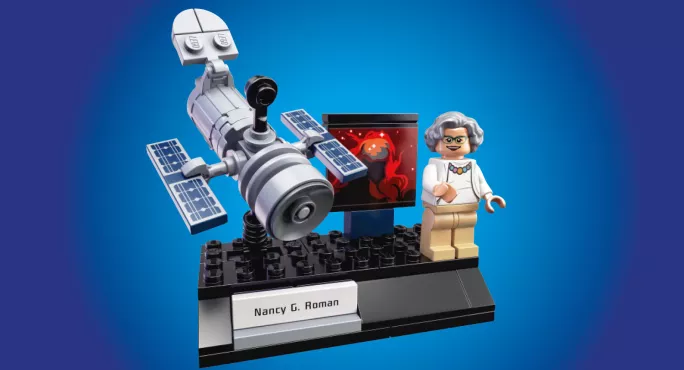I was childishly excited last week when I saw Lego was bringing out a Women of Nasa set. It almost - but not quite - made up for the hideous pinkification number it did on us a while back.
The Lego figures of Nancy Grace Roman, Margaret Hamilton, Sally Ride and Mae Jemison may be tiny but these women’s achievements were huge, both in terms of science and for their gender.
Roman was the chief of astronomy in Nasa’s Office of Space Science and the first woman to hold an executive position at the agency; Hamilton was leader of the team that developed the flight software for the Apollo mission; Ride was the first American woman to fly in space; and Jemison was the space agency’s first African-American female astronaut.
Getting a Lego figure made of oneself is, obviously, the ultimate triumph, but sadly women in science don’t fare well when it comes to kudos and awards.
Only two women have ever won the Nobel Prize in physics. In the entire history of the prizes to date, there have been only 18 female laureates across the three science categories - and 581 male.
There are, of course, all sorts of reasons for this, but mainly sexism and many ingrained biases that start at an early age and become more pronounced as girls move through school. Isabella L. Karle, who died recently, was a scientist who helped to reveal the structure of molecules. But she had been told by her teacher that chemistry was not a “proper field for girls”.
Now, we all know that the government recognises the importance of science, technology, engineering and maths subjects - in fact, barely a ministerial speech escapes without a mention of how vital they will be to this country after Brexit. Demand for people with science and engineering skills is huge, but there’s just not enough of them, especially women. And we’re going to need a lot more than pink Lego to get them.
The blame lies partly with employers, who are reluctant to address the needs of women when hiring. Skills minister Anne Milton, speaking this week on apprenticeships, said that employers were missing out on “a wealth of talent” by refusing to look at flexible and part-time hours for women with caring responsibilities.
They need to rethink their methods of recruitment if the UK is to advance from “the Dark Ages”, she said (bit.ly/EmployWomen). And that would go for all Stem careers, too.
The second problem is lower down the pipeline, at primary school, and is one that affects both sexes. Recent research by the Wellcome Trust found that more than half of primary classes did not get even two hours of science a week. Unsurprisingly, only 23 per cent of 10- and 11-year-olds reached the expected standard in science in last year’s end-of-primary-school assessments.
There’s no point in the government proselytising careers in Stem if its policies are failing to turn our children on to the joys and possibilities of science early in their school life.
Scientific discovery and space travel should be a dream for both girls and boys. Times have changed since 13-year-old Hillary Rodham wrote to Nasa saying that she wanted to be an astronaut and was told that it wasn’t accepting women. Unfortunately, some 50 years later, she found the same with the US presidency. But that’s another story.
That’s why the Women of Nasa collection gives me such great joy. It will inspire girls to build more than just a Lego figure: it will help them to build the confidence to ask for the Moon. And perhaps some of them will even get it.
@AnnMroz




